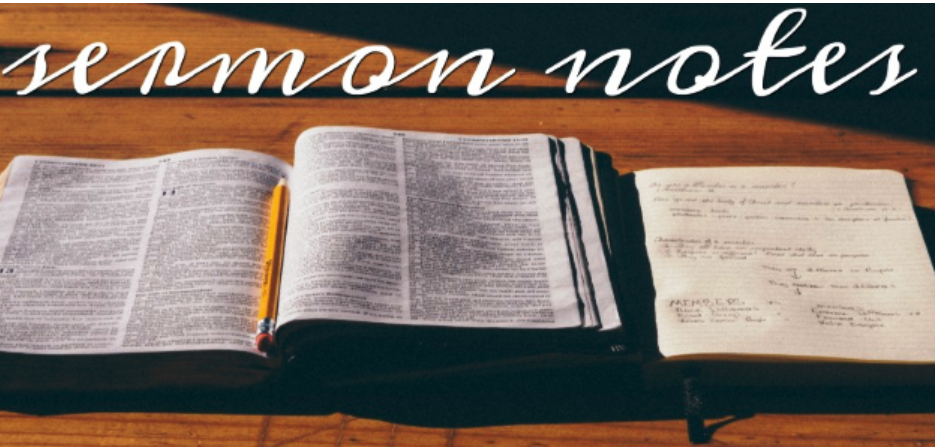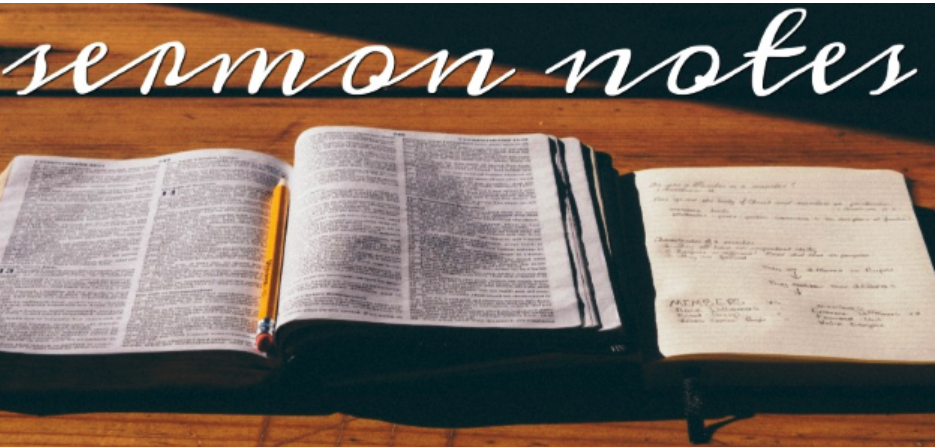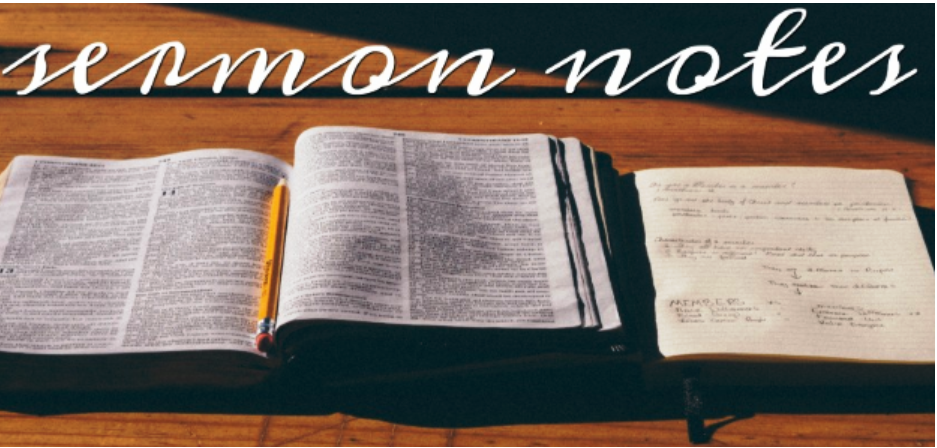
Daily Reflection – Without Love, Deeds Count as Nothing


416 N 2nd St, Albemarle, NC, 28001 | (704) 982-2910


“The Cycle of Love Continues”
Father Peter Fitzgibbons
November 6 – 7, 2021
Gospel: Mark 12:38-44
The month of November can be classified as a study in Ecclesiology or Who the Church is. You can read about bishops referring to the Church as a “what.” But it’s a “Who.” “Father, why do you say that? How can you contradict a bishop?” I like contradicting bishops. . . it’s a hobby. When Paul was going around beating people up, Jesus said “Saul, why do you persecute Me?” He didn’t say, “Why are you persecuting My institution.” No. He said, “Why do you persecute Me.” The Church is a “Who.” It’s the body of Christ. There are aspects of a “what” but it’s a “Who.”
What brought the Church in to being? I’ll give you the answer by asking my second question. What brought you in to being? It wasn’t a “what” – it was a “Who.” God’s love. The first question in the Catechism is “Why did God make you?” Because He loved you. You were created out of love. You have always been in the mind of God for all eternity. We existed in the mind of God before we existed in the bodies of our mothers. God created us out of love and sustains us out of love. He calls us into His presence out of love. He calls us into His church out of love. This is His gift of love so that we can become one with the Body of Christ. . . His Bride. So, the Church is not a “what.” It’s a “Who.” It is the Bride of Christ.
Some people try to change the Church. If it’s an institution you can change it, but if it’s a “Who,” you can’t. The Church is a “Who.” That “Who” was formed out of love, sustained and created out of love, and exists only because of love. It’s a love of all people in the world and not just those here in Albemarle even though we love it here . . . it’s the best parish in the diocese. Don’t tell them that – they will get really upset. I almost get into fights with other priests when they tell me how great their parish is. Really? The whole Church is united by baptism. As Bishop Waters said, there are no hyphenated Catholics. We are united in love, and we come to express our love and our prayers for those who have gone before us. As we pass from this world, those left behind will pray for us, and the cycle of love will continue.
Our love of others gave us what we have. We didn’t build or pay for this church. The Church of the Annunciation in New York gave the money to build it. So, Yankees built this church. We are enjoying their gifts of love and the gifts of love by those in this parish who have gone on before us. The saints who have gone on before us pray for us. They give us that gift of love. They intercede for us to the Father so that we can attain what they have. Love is not fulfilled unless it is complete. No mother is happy unless she has her family around her. The saints want their spiritual family, the whole body of the Church, to be with them in Heaven. They always pray for us. We as the Church Militant, the Church working for our salvation, pick up our crosses each day and follow the good Lord. We pray for those who can’t. . .those who have gone before us and who are cleaning their baptismal robes so that they may come and dwell in the place of the Perfect. This is mentioned at every Mass. When we pass away, the Church will pray for us, maybe not by name, but they will always pray for us. You were given the gift of love not by your prayers but by this prayer. Because the Holy Sacrifice of the Mass is what? You got me on that one. It’s not a “what.” It’s a “Who.”
In some churches, they announce that “the liturgy will be celebrated…” That’s a Greek word meaning a public act. Big deal. They think they are really hip. The Holy Sacrifice of the Mass is Christ offering Himself to the Father. And Christ, in that offering, is made present on the altar. He asks not for our participation. This is where the catechetics of the Mass have gotten really weird over the years. The terms we use when referring to the Mass are often blasphemous. “We go to church.” Yeah. You walk in and walk back out. Big deal. “I attend church.” Well, I attend a play. “I actively participate.” You know, I have a degree in Philosophy, believe it or not, and I have paperwork to prove it. But I have no idea what that phrase means. It was made up in the last forty years, and it means absolutely nothing. So, when I say Mass in hospitals and nursing homes for people who are barely conscious and heavily medicated, they aren’t actively participating? During my 13-minute Mass in the field, when the natives were restless, we didn’t sing, but we prayed a lot. Are you kidding me? They were trying to kill Blanch and John’s little boy. You do not actively participate. You do not go to Mass. You do not attend Mass. Take what I’m about to tell you and commit it to memory. You are called, when you come here, to become part of Christ’s sacrifice. Whether we sing or not and whether we take up a collection or not has nothing to do with it. You are called to become part of the sacrifice of Christ. The Romans participated in the crucifixion, but they didn’t actually suffer with Christ, did they? You take the place of the Blessed Mother whose human nature Christ took and suffered with on the Cross and redeemed us with. You take the place of Saint John the Apostle, the Beloved, who suffered with Christ out of love. You take the place of Mary Cleophas. You are suffering with Christ. You unite your sufferings and human nature with the suffering of Christ. In the offertory, the priest, acting in the person of Christ, takes your human natures and makes them one with Christ in that animation of love on the altar that is always present to the Following. You become part of Christ’s sacrifice. That is why this place is so special. Not only is there the Real Presence of our Lord in the Most Blessed Sacrament, but you are also standing at the foot of the Cross. And very shortly you will become part of Christ’s sacrifice. At Mass, you will receive the grace of offering yourself. You may offer that grace to one of your departed brethren. The grace of receiving Holy Communion is another one. Even if you are not able to receive the Most Precious Body and Blood of our Lord Jesus Christ, you can offer that sense of deprivation to someone else.
This month, we pray for those who have gone before us. The Church always prays for the departed. . . always. The Protestants, with their so-called reformation say, “We don’t pray for the dead.” Yeah, well we do. It’s a part of the Church. The Catacombs are filled with inscribed prayers in Latin. What do they say? “Pray for me.” Since the earliest days of the Church, for over 2,000 years, we have prayed for them. This is what we do. When our loved ones are all in Heaven, with mine it may take a little work, but when they are all in Heaven, then our prayers go to someone else who needs them. Remember that old Italian saying: “I remember your name.” The saints all know who to pray for because when they get to Heaven, they are enlightened by the transfiguration. They know who helped them, and they will mention you by name to the ear of Christ.
Father’s Afterthoughts:
Veterans Day is this week. There are a lot of people who served, but just because they served doesn’t make them heroes. In my day, people served because they didn’t want to go to jail or to go to Canada and learn to speak French. I wouldn’t want to share a foxhole with them. They might get me killed. But there are a lot of unknown heroes. I hear a lot of stories from veterans at the VA Hospital, and I’m going to tell you about two heroes. One of the vets asked me if I served in Vietnam, and I told him “No.” This vet told me that his older brother volunteered for Vietnam so he wouldn’t have to go. His brother was a hero. Another veteran, who is 99 years old and in Hospice, has all his faculties. . . he just can’t see very well. This veteran was in the Armored Division during World War II and had a job nobody wanted. . . Radio Telephone Operator or RTO. They were the ones the enemy was told to take out first. Your lifespan as an RTO wasn’t that great. To make matters worse, you carried a big antenna which let everybody know exactly where you were. Thank you! The good side of being the RTO is that he got to ride in a half-track and didn’t have to walk all the way to Berlin. His unit liberated Dachau; the first concentration camp established in Germany. Those are the veterans you should pray for and honor.
How will you apply this message to your life?
You can read all of Father Fitzgibbons’ sermons by going to annunciationcatholicalbemarle.com/, clicking on “Blog” then “Categories” and then “Sermon Notes.” They can also be found on Facebook by searching for “Our Lady of the Annunciation Albemarle”


Jesus left no formal religious rule for his followers. The closest he came was his proclamation of the Beatitudes: Blessed are the poor in spirit, the meek, the merciful, the peacemakers….
Francis took to heart this spiritual vision and translated it into a way of life. In various ways, other saints before and since have done the same. But for many men and women since the time of Francis, his particular example has offered a distinctive key to the Gospel—or, as Pope Francis might say, “a new way of seeing and interpreting reality.” Among the central features of this key: the vision of a Church that is “poor and for the poor”; a resolve to take seriously Jesus’s example of self-emptying love; the way of mercy and compassion; above all, a determination to proclaim the Gospel not only with words but with one’s life.
—from the book The Franciscan Saints by Robert Ellsberg


“Follow Directions!”
Father Peter Fitzgibbons
October 30 – 31, 2021
Gospel: Mark 12:28-34
One thing about theology, it is a precise science. Our Lord was precise. He gave our first parents instructions in a 12-word declarative sentence: “You shall not eat from the Tree of Good and Evil.” They screwed it up, and here we are. Really? It was twelve words in a declarative sentence about how to maintain the original state of grace. Our Lord reiterates what His Father revealed in the Old Testament about how we should love God with all our heart, soul, strength, and mind. He also said, “Thou shalt love thy neighbor as thyself.” But the devil clouds our minds, especially of those who are educated way beyond their abilities. “What does that mean?” “How can we do this?” “We better check the nuances of that.” “Well, that was 2000 years ago, and now this word means something else.” No. It really means what it says. “It means this now because we are all enlightened.” No, that’s just a temptation of the devil. We want to be like God and make up our own rules. When you get to Judgement, let me know how that goes for you.
Our Lord did not say, “Work it out for yourselves, and whatever you come up with is good.” No. He was very precise in how He told us to do it because He knew we would mess up. Follow the Commandments. By the way, a person’s conscience does not triumph over Divine Mandate or Church teachings. “My conscience told me it was okay to do this.” If you go down the street about a half mile and take a left at the courthouse, behind it is a big building full of people whose conscience told them it was okay to do whatever they did. Also, if you drive down Airport Road to Felon University, there’s a whole bunch of people there who will say, “God told me it was okay to put a bullet in that guy’s head.” No. Conscience does not trump Divine Revelation. The apostles had been in the presence of God for years and saw all those miracles, but every time He asked them a question, they got it wrong.
Our Lord was precise. Let’s say that you are traveling, and you think the Mass is at 8:30 at Our Lady of Perpetual Agony down the street. You get ready and go, but they moved the Mass to 7:30. Are you guilty of missing Mass on Sunday? No, because you tried. Are you guilty of missing Mass if you got your days mixed up and thought November 2nd was a Holy Day when it was actually on November 1st? No, you’re not. But, when you give the Church the big humph, well then you have a problem. God tells us exactly how to love. He knew we would mess it up because of our fallen nature. We are supposed to try to return to the original state of grace by living a life of holiness, and we can by doing what He told us to do.
“What would Jesus do?” Jesus told us precisely what to do. If we do what He said to do, we will get what He has promised. Two weeks ago, I went to see my cardiologist. It was a great appointment because he never put on a glove. One glove is bad enough, but when they double-glove, be very afraid. . .it might get mildly invasive. “Now this is going to hurt a bit.” No it’s not. It’s going to hurt a heck of a lot! It’s not a thrill for anybody on the other side of the glove either…trust me on this one. I saw a doctor give a patient a rabies shot in the finger. Wherever you are bitten, that’s where you get the shot now. This guy was a Vietnam Vet, and he was no sissy boy. The doctor said, “Now this is going to hurt.” The guy was sitting in a chair, and he grabbed both chair arms while nurses held him down by his shoulders. After the shot, he decided to relax a while on a gurney. Afterward, I was talking to the doctor, and he said, “Oh, it’s going hurt worse tomorrow.” Who are you, Joseph Mengela? Anyway, my cardiologist said that my blood work is fine. I’m normal – at least my blood is. I’ve been keeping records from when I started this heart regime two years ago after my brother’s death. There is improvement because I did what I was told to do. Did I always like it? I’ll let you be the judge. When I go out to breakfast with the staff, they have French toast and bacon while I have fake eggs and dry wheat toast. What do you think? To make matters worse, they go on and on about how good their food is. Stuff it! I’m not brave enough to tell them, but that’s what I’m thinking. Still, I did what my doctor told me to do, and I have scientific evidence that my health has improved. However, it just means I’m going to die of something else.
Our Lord showed us exactly what we should do. Love your enemies and pray for them. Sometimes, the most loving thing to do is not the thing we want to do. We all have someone who irks us and who we just cannot stand. I am not immune even as a priest. Am I supposed to forgive them? Yes, even though sometimes I’d like to go charismatic and lay hands on them. Forgiveness is an act of intellectual love. . . an act of faith. What are we supposed to do? We are supposed to pray for them. Pray for good for them. . .and not to have an aneurism. Pray for their conversion. Pray that God will lay hands on them and not from the Joe Cutrone School of Counselling.
Our Lord left us precise ways to show our love for Him and precise ways to show that love in action. What did our Lord tell us about forgiveness? He gave us an example of what that love is in the parable of the prodigal son. In the parable, the father didn’t wait for his son to grovel. He ran out to meet his son, put his arms around him, and kissed him on the cheek. He even had a celebration for him. Likewise, our Lord went out after sinners. He went to sick people like the blind man and healed them. He didn’t ask if they wanted to be healed; He healed them anyway. We are supposed to do that for those who hate us, for those who don’t love us, and for those who are unkind to us. He told us to love one another, and this is how we are to demonstrate our love. He showed us exactly what to do even to the point of the Cross.
How will you apply this message to your life?
You can read all of Father Fitzgibbons’ sermons by going to https://annunciationcatholicalbemarle.com/ and clicking on “Blog” then “Categories” and then “Sermon Notes.” Sermon notes can also be found on the church Facebook page by searching for “Facebook Our Lady of the Annunciation Albemarle”

God resists our evil and conquers it with good, or how could God ask the same of us?! Think about that. God shocks and stuns us into love. God does not love us if we change; God loves us so that we can change. Only love effects true inner transformation, not duress, guilt, shunning, or social pressure. Love is not love unless it is totally free. Grace is not grace unless it is totally free. You would think Christian people would know that by now, but it is still a secret of the soul.
—from the book Breathing Under Water: Spirituality and the Twelve Steps by Richard Rohr

We have been graced for a truly sweet surrender, if we can radically accept being radically accepted—for nothing! “Or grace would not be grace at all” (Romans 11:6)! As my father Francis put it, when the heart is pure, love responds to Love alone and has little to do with duty, obligation, requirement, or heroic anything. It is easy to surrender when we know that nothing but Love and Mercy are on the other side.
—from the book Breathing Under Water: Spirituality and the Twelve Steps by Richard Rohr

The suffering creatures of this world have a divine Being who does not judge or condemn them, or in any way stand aloof from their plight, but instead, a Being who hangs with them and flows through them, and even toward them, in their despair. How utterly different this is from all the greedy and bloodthirsty gods of most of world history! What else could save the world? What else would the human heart love and desire? Further, this God wants to love and be loved rather than be served (John 15:15). How wonderful is that?! It turns the history of religion on its head. Jesus said it of himself: “When I am lifted up from the earth, I will draw all people to myself” (John 12:32) and “from my breast will flow fountains of living water” (7:38). It is only the “harsh and dreadful” commingling of both divine love and human tears which opens the deepest floodgates of both God and the soul. Eventually, I must believe, it will open history itself. I will sink my anchor here. To mourn for one is to mourn for all. To mourn with all is to fully participate at the very foundation of Being Itself. For some reason, which I have yet to understand, beauty hurts. Suffering opens the channel through which all of Life flows and by which all creation breathes, and I still do not know why. Yet it is somehow beautiful, even if it is a sad and tragic beauty.
—from the book Breathing Under Water: Spirituality and the Twelve Steps by Richard Rohr

“Because I Like Skittles”
Father Peter Fitzgibbons
October 9 – 10, 2021
Gospel: Mark 10:17-30
One day when I was at Fort Campbell, I went into the First Sergeant’s office to say, “good morning.” The First Sergeant said, “Good morning. Hey Sir, you know your chaplain’s assistant is graduating from air assault school. His road march is on Friday.” Oh, goodie! Thanks for reminding me. I appreciate it! I left his office, but I didn’t appreciate it. It meant that on Friday at 0-dark-30, I would be out there for graduation and the final test: a 12-mile march in full field gear through gently rolling hills similar to the Alps. The custom at Fort Campbell and the 101st is that if there is one person in your section doing push-ups or a road march, you all do it. The only saving grace is that I didn’t have to wear the field gear. Oh, there is nothing I’d rather do first thing in the morning than go on a 12-mile march at 44 years old. Thank you, First Sergeant! I probably could have gotten out of it, but I sucked it up and went anyway. I was looking forward to the relaxation and being one with Mother Nature. Um…No. I would be running with children who basically had to run all the time. Why did we do it? We sacrificed to build and reinforce the bond of trust we have with our fellow soldiers…the band of brothers. Is it pleasant? Oh, heck no! But it was the right thing to do. They are works of love. The bond with your fellow soldier is that he would die for you and you for him. Works of love don’t always have to be enjoyed. Why do we perform works of love? We do them because it pleases the beloved.
Our Lord said, “If you love Me keep my Commandments.” Nowhere did our Lord say, “if you would like to” or “if it’s convenient” or “if you aren’t too busy” or “if you’re in the mood.” He never said those things. He said, “If you love Me keep my Commandments.” The Commandments are not just draconian measures that our Lord has given us to ruin our fun. The works of love teach us how to go outside of ourselves, to renounce our fallen nature, and to do something for Him. It may manifest itself in someone or through someone else. Everything we do with love; we do for Christ. Doing works of love is not always pleasant. Do you know why some people find the works of love unpleasant? Because we are too much in love with ourselves. The works of love are always focused on the beloved and not on self. The Gift of the Magi is a short love story written by O. Henry. Love is always focused on the other, and when we find the works of love inconvenient, unpleasant, or distasteful, that is the time we grow most in love by dying to ourselves and living more for our good Lord. “Father, I had a game and couldn’t come to Mass.” Really? Saint Augustine wrote that “if there is any work involved in love, the work itself is love.” And that is true. The young man who approached our good Lord was unwilling to leave everything and follow Him. Our Lord was testing him. How much do you love Me? The young man kept the Commandments and that was wonderful; however, he did not learn the lesson from them. What is the lesson from the Ten Commandments? It is total renunciation of oneself to the Beloved. That’s the lesson. Go sell everything you have. Give to the poor. Your possessions are a representation of yourself. Give everything you have into service for our good Lord to use as He sees fit. All the fruits of your talents and labors when used to support your family are works of justice and love. So don’t feel bad about that. People say you cannot earn a lot of money from the job you’ve worked at for 30 or 40 years. You can’t enjoy it because you didn’t earn it. It’s a work of justice and moral obligation to support yourself and your family and ultimately to pay taxes. Put yourself and all your talents and abilities in God’s hands. Renounce yourself and give yourself to Him. The young man did not see that. Hopefully, he eventually got it right.
You’ve heard the phrase “follow the science.” Who says that? People who want you to follow their version of “science.” You know what the science is for people recovering from any addiction? No matter how much medicine is involved, make sure they come back from Opioids, Meth, or booze, and that they don’t die from detox. That’s a big drawback. In all the twelve-step programs, what’s the key to renewal and freedom from addictions and obsessions? It begins with Step 1 which is perhaps the most important step – admitting that we are powerless. The final step is to have a spiritual awakening. There is a Seventh Step prayer…I’ll let you look that up too. It’s a prayer of total renunciation. In all the groups that started these types of programs what was the first prayer? It wasn’t the “Our Father” but the “Peace Prayer” by Saint Francis. “Lord make me an instrument of Your peace. Where there is hatred, let me sow love.” That’s a renunciation of self. Take me and use me as you will with all my talents especially where it is most helpful for people who know my faults. It’s through your faults that shows people what God has done for you and the mercy he has shown to us all. We do works of love not for ourselves because it pleases us…that’s selfishness. The Commandments aren’t legal checkmarks you have to do like driving the speed limit when the police are around. The Commandments are works of love. They teach us renunciation of self. They are only burdensome when we want what we want when we want it, or we find them to be inconvenient because we love ourselves more. They are not always convenient. They are not always pleasant. I’m sure changing diapers is not always pleasant. I’ve been in hospitals. Believe me, there are far worse smells in a hospital than in a diaper. Trust me on this one. Sometimes I leave patients’ rooms and have Skittles. Know why I have Skittles? Because I like Skittles.
We all have fallen natures. Just this morning I was here, long before you, saying my prayers. And I really wanted some coffee. I mean I REALLY wanted coffee. The coffee had already been brewed. But what was more important… my cup of coffee or my prayers? You know the answer, but darn it, I wanted some coffee. Today, the good side of my nature won, but it’s always a fight. So, when difficulties come, always remember Who the works of love are for.
Father’s Afterthoughts:
· I want to thank the Daughters of Mary for the marvelous meal they provided after the funeral Mass for Elaine Gibbs. The funeral luncheons they do is something to die for.
· When I was in the Army, I always loved those eight mile runs in the rain. It was so refreshing and cleansing. Thank you, sir. Could you make this suck any more?
How will you apply this message to your life?
You can read all of Father Fitzgibbons’ sermons by going to https://annunciationcatholicalbemarle.com/ and clicking on “Blog” then “Categories” and then “Sermon Notes.” Sermon notes can also be found on the church Facebook page by searching for “Facebook Our Lady of the Annunciation Albemarle”